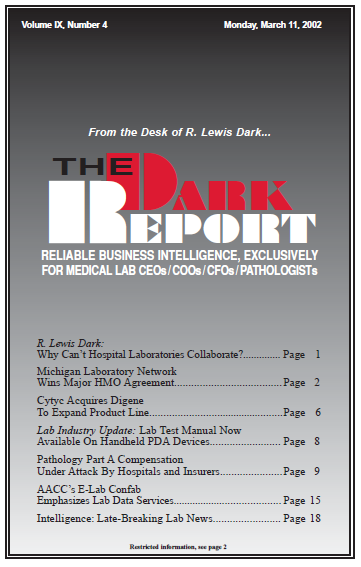CEO SUMMARY: Cytyc Corporation will pay more than one half billion dollars to purchase Digene, Inc., and its DNA Capture HPV test. For Cytyc, this may prove to be a strategic masterstroke. In the short term, it alters the competitive balance in the market for liquid preparation Pap testing products, where Cytyc already holds more …
Cytyc Acquires Digene To Expand Product Line Read More »
To access this post, you must purchase The Dark Report.


